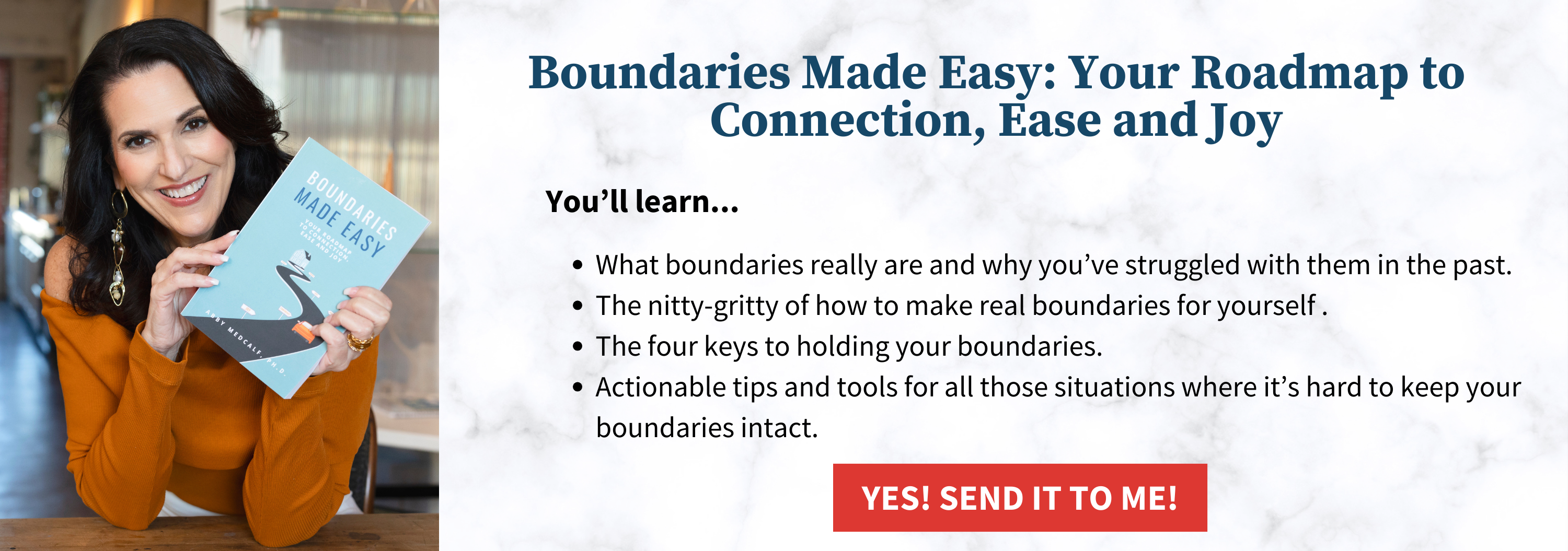
Think about your relationships: Do you find yourself always giving but rarely receiving support? Are you the one everyone relies on to solve problems, listen to their concerns, or offer emotional support? If yes, you might be headed toward compassion fatigue without even realizing it. Today you’ll learn what it is, why you might be suffering with it, and three powerful tips to overcome it so you can create balance and peace in your life.
6-minute read
What is Compassion Fatigue?
Compassion fatigue is more than just feeling tired. It’s the emotional and physical exhaustion that happens when you’ve been repeatedly exposed to the suffering or emotional needs of others. It’s not just about dealing with stress; it’s about being overwhelmed to the point that you start to shut down emotionally, even if you don’t realize it at first. Compassion fatigue can leave you feeling detached, irritable, and even resentful, especially when your own needs take a back seat.
Compassion fatigue can happen to anyone who’s consistently in a role of taking care of other people’s emotional needs, which could include your partner, kids, family members, friends, co-workers or even your boss! This is especially true if you’re the person everyone comes to for support or advice. Over time, always being there for others can start to wear you down, particularly if you don’t have healthy boundaries in place.
According to Dr. Charles Figley, a leading researcher in this field, compassion fatigue happens when caregivers (or anyone giving emotional support) begin to feel a diminished ability to empathize with others, leading to feelings of helplessness and burnout.
When you’re constantly attending to other people’s needs, at home, at work, or in your social circles, without taking care of your own, you’ll eventually hit a wall. You may start to feel emotionally distant or even apathetic or indifferent toward the people you genuinely care about. You might snap at your partner for something small or avoid friends because you’re simply too drained to care anymore. These are all signs of compassion fatigue creeping in.
Why You Might Have Compassion Fatigue
Healthcare workers and caregivers were the ones originally identified as having compassion fatigue. But you don’t have to work in a hospital or be a first responder to experience it. If you’re someone who is emotionally sensitive, empathic, or even just a “fixer” in your personal relationships, you’re at risk. Many of us, especially people-pleasers or anyone who struggles with codependency, are highly attuned to other people’s emotions. We feel responsible for their happiness and well-being, and that’s a fast track to emotional burnout.
Research on emotional labor shows that people who frequently manage other people’s emotions (like therapists, teachers, and parents) are at risk of exhaustion and emotional detachment. In your relationships, this emotional labor can show up when you’re the one constantly managing conflicts, listening to complaints, or helping others navigate their emotions.
In codependent relationships, this can be even more pronounced. Remember, codependency involves a pattern where you’re overly focused on the needs of other people, often to the detriment of your own emotional and physical health. Your sense of self-worth can be tied to how much you’re able to help or “fix” someone else. The more you give, the more exhausted you become, leading to compassion fatigue.
Over time, this chronic giving and sacrificing can leave you feeling like you have nothing left. You might even start to feel resentful or bitter, especially when your efforts aren’t reciprocated or appreciated. It’s like pouring from an empty pitcher; eventually, there’s nothing left to give.
Three Action Tips to Combat Compassion Fatigue
Now that you know what compassion fatigue is and how it can sneak into your relationships, let’s talk about how to work on it. Here are three tips to help you regain balance.
Tip #1: Set and Hold Boundaries
I know, I talk about boundaries all the time, but that’s because they work! One of the biggest contributors to compassion fatigue is a lack of boundaries. If you’re constantly saying “yes” when you want to say “no,” or if you’re always available to help others but never take time for yourself, you’re setting yourself up for burnout.
Research on boundaries shows that they help people manage their energy levels and maintain emotional health by avoiding over-commitment. Start practicing setting small boundaries. For example, you could set aside specific times in your day when you’re available for others and protect your personal time fiercely. Saying “no” might feel uncomfortable at first, but remember: taking care of yourself is not selfish. It’s necessary.
Tip #2: Check In with Yourself As Much as Possible
Abby, are you talking about mindfulness again?! Why, yes I am! When you’re in the habit of caring for others, it’s easy to lose track of how you’re really feeling. Studies show that regular self-reflection can significantly reduce stress and improve emotional resilience.
Create a daily check-in routine where you ask yourself how you’re doing emotionally. Identify three feelings (I suggest three times per day). These check-ins can help you recognize when you’re nearing the edge of compassion fatigue.
Once you identify those feelings, take action. It might be something as simple as taking 10 minutes to meditate, go for a walk, or journal. Maybe you need to eat or drink something. Or maybe you need five minutes of playing games on your phone. The key is to pause long enough to listen to your own needs and respond to them.
Grab my FREE Mindfulness Starter Kit to make mindfulness a consistent habit in your life.
Tip #3: Shift Your Perspective
A big part of combating compassion fatigue is realizing that it’s not your responsibility to “fix” everyone else’s problems. You can be supportive without taking on the weight of someone else’s emotional baggage. Research on emotional regulation supports the idea that creating emotional distance from others’ issues can reduce burnout and increase personal well-being.
One way to do this is by shifting your perspective from being a “rescuer” to being a “supporter.”
Instead of trying to solve other people’s problems, ask yourself how you can offer support without sacrificing your own well-being. This could mean offering a listening ear but setting a time limit or encouraging someone to find professional help rather than taking on the emotional labor yourself. Remember, empathy, not sympathy! You can connect with the feeling, but don’t connect with the situation.
Wrap Up
Compassion fatigue isn’t just something that happens to healthcare workers. It’s something that can affect anyone who’s constantly in the role of caretaker, listener, or problem-solver in their relationships. The good news is that by setting boundaries, regularly checking in with yourself, and shifting your perspective, you can protect yourself from compassion fatigue and create healthier, more balanced relationships, including the one with yourself.
So, if you’ve been feeling drained, irritable, or disconnected in your relationships, take it as a sign. It’s time to put yourself back on the priority list. You deserve as much compassion and care as you give to others.
Research and Resources for What Is Compassion Fatigue? Signs, Causes, and 3 Powerful Tips to Overcome It
The #1 Reason Why You Don’t Hold Your Boundaries
How Emotional Labor is Killing Your Relationship
Learn to Hold Your Boundaries with Healthy Selfishness
How to Stop Rescuing and Start Supporting
Empathy in Relationships Is the Key to Connection and Communication
Your People Pleasing Might Be a Trauma Response
Boundaries Made Easy: Your Roadmap to Connection, Ease and Joy by Dr. Abby Medcalf








